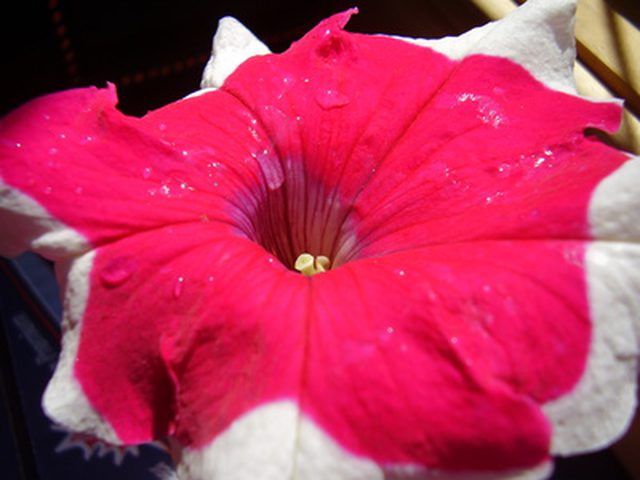Bulbs
Flower Basics
Flower Beds & Specialty Gardens
Flower Garden
Garden Furniture
Garden Gnomes
Garden Seeds
Garden Sheds
Garden Statues
Garden Tools & Supplies
Gardening Basics
Green & Organic
Groundcovers & Vines
Growing Annuals
Growing Basil
Growing Beans
Growing Berries
Growing Blueberries
Growing Cactus
Growing Corn
Growing Cotton
Growing Edibles
Growing Flowers
Growing Garlic
Growing Grapes
Growing Grass
Growing Herbs
Growing Jasmine
Growing Mint
Growing Mushrooms
Orchids
Growing Peanuts
Growing Perennials
Growing Plants
Growing Rosemary
Growing Roses
Growing Strawberries
Growing Sunflowers
Growing Thyme
Growing Tomatoes
Growing Tulips
Growing Vegetables
Herb Basics
Herb Garden
Indoor Growing
Landscaping Basics
Landscaping Patios
Landscaping Plants
Landscaping Shrubs
Landscaping Trees
Landscaping Walks & Pathways
Lawn Basics
Lawn Maintenance
Lawn Mowers
Lawn Ornaments
Lawn Planting
Lawn Tools
Outdoor Growing
Overall Landscape Planning
Pests, Weeds & Problems
Plant Basics
Rock Garden
Rose Garden
Shrubs
Soil
Specialty Gardens
Trees
Vegetable Garden
Yard Maintenance
Fertilizer for Petunias
Fertilizer for Petunias. Fertilizing petunias enhances their quality and abundance, as fertilizers contain nutrients essential for flowering, strong root growth, and rich-green stems and leaves. Without the right nutrients, petunias may be slow to grow, fail to bloom or produce pale or discolored leaves. Petunias--one of the most popular...
Fertilizing petunias enhances their quality and abundance, as fertilizers contain nutrients essential for flowering, strong root growth, and rich-green stems and leaves. Without the right nutrients, petunias may be slow to grow, fail to bloom or produce pale or discolored leaves. Petunias--one of the most popular annuals--come in hundreds of varieties and grow readily in window boxes, hanging baskets, flower beds and containers.
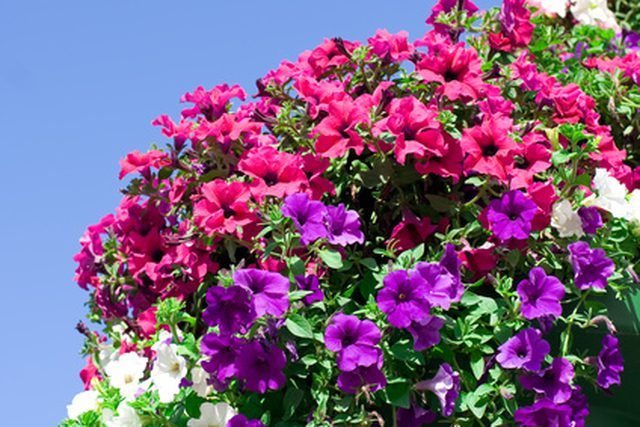
Petunias are annual flowers, blooming from spring to frost with just one long growing season. They are one of the "most popular flowering annuals," according to Deborah Brown, a horticulturist writing on the University of Minnesota's website. Grandiflora petunias, she writes, are the most sought after; they have large flowers and some have a cascading habit. Other petunias, among their wide variety, include multiflora, with smaller but more abundant blooms; groundcover, with plants reaching 6 inches in height and spreading rapidly; and milliflora, with compact, miniature and abundant flowers.
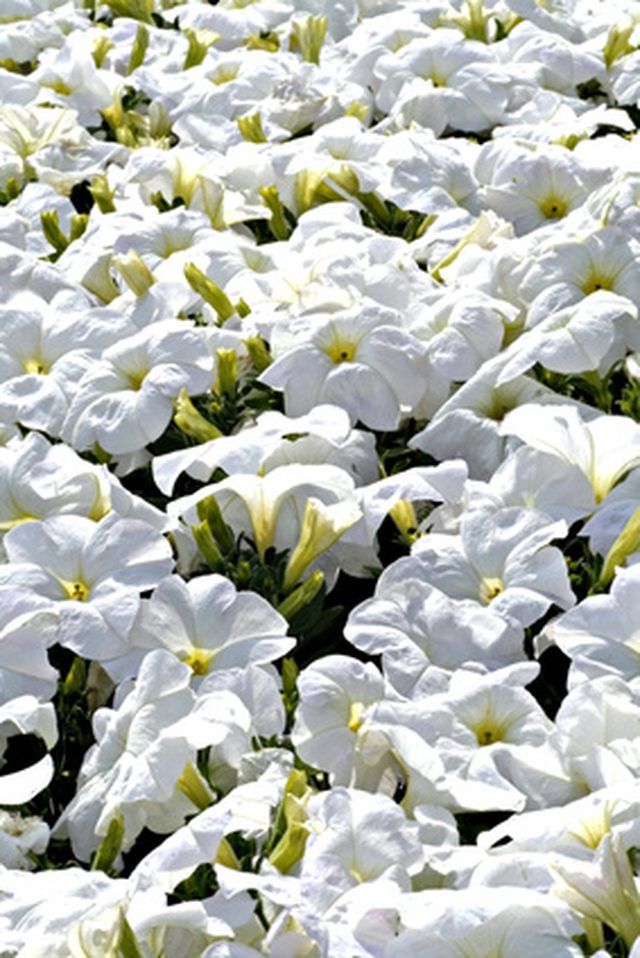
The Better Homes and Gardens' "New Garden Book" indicates that fertilizers are either organic or inorganic. Organic fertilizers form naturally, such as compost (a mixture of mostly decayed organic matter), mulch (a protective ground covering which, among other benefits, enriches the soil) and manure. Inorganic fertilizers are man-made chemical formulations. Inorganic matter, because it feeds nutrients to plants much faster than organic material does, is the preferred fertilizer for petunias, giving them the large and immediate infusion needed at the planting stage.
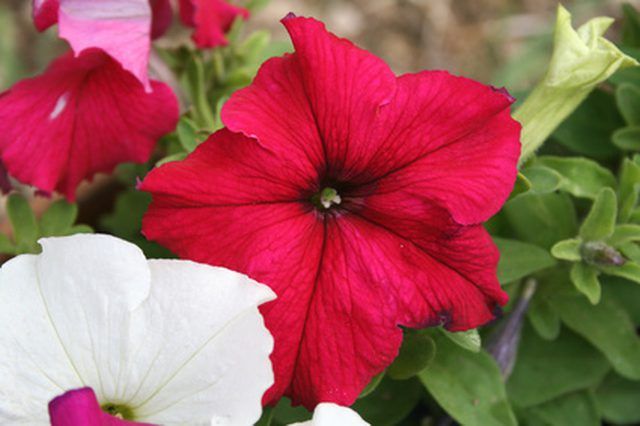
Chemical fertilizers are labeled for their essential nutrients: nitrogen, phosphorous and potassium. A numerical system, such as 15-15-15 or 15-16-17, denotes the percentage of each nutrient in the fertilizer. The first number indicates the nitrogen (N); the second, the phosphorous (P); and the third, the potassium (K). The amount of the nutrient in each fertilizer is indicated by the number: a 15-16-17 fertilizer, for example, contains 15 percent nitrogen, 16 percent phosphorous and 17 percent potassium. Good choices for petunias, according to Douglas Cox of the Plant and Soil service at the University of Massachusetts, are 15-15-15, 15-16-17 and 20-10-20.
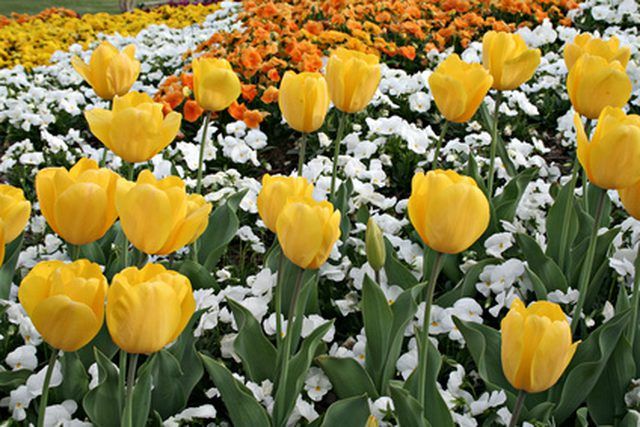
Fertilize petunias when you plant them. Dig holes in the soil for the petunias and spread the fertilizer just below the root level, mixing it into the soil before you plant. Petunias should be fertilized a second time in early or mid-July, using half the amount used in the first application, as the Landscape Horticulture Program at the University of Rhode Island advises on its website. It's also suggested that petunias grown in containers should be fertilized every two weeks.
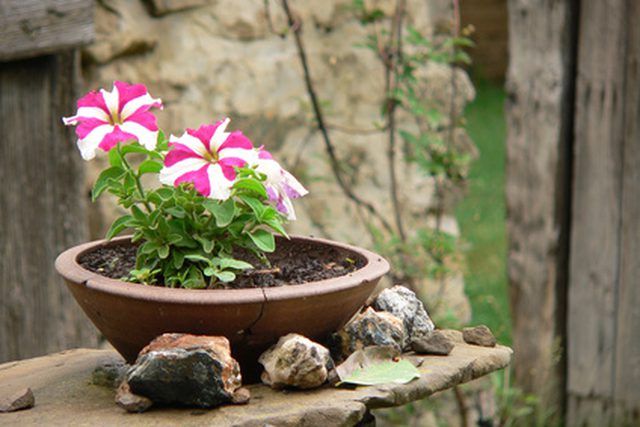
Be careful not to over-fertilize petunias, or sparse flowers may result. If yellow foliage (chlorosis) occurs--indicating a lack of nitrogen or iron--correct it with fertilizers high in these nutrients, advises the University of Rhode Island Landscape Horticulture Program.
